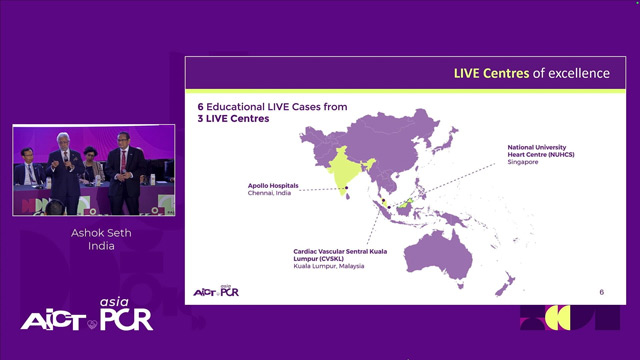3136 results for «2090»
3136 results
From crossroads to crossovers: cracking the left main code
20 May 2025 – From EuroPCR 2025
Navigate complex scenarios in left main coronary artery interventions with this session focusing on protected left main and multivessel disease, IVUS-guided PCI, stent optimization, and in-stent restenosis management. Real-world cases from Azerbaijan, Moldova, and Iraq provide collaborative insights and innovative strategies for challenging coronary anatomy.
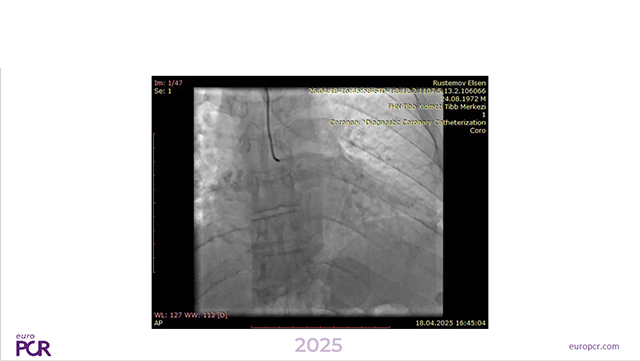
Complex PCI in a TAVI patient - LIVE case
20 May 2025 – From EuroPCR 2025
An 84-year-old patient with a history of ischemic stroke in 2017, hypertension, diabetes, dyslipidemia, and a preserved LV function (63 %) presented with a severe symptomatic aortic stenosis. The coronary angiography revealed a severe and calcified stenosis of the distal left main.
Operators implanted an Edwards Sapien...
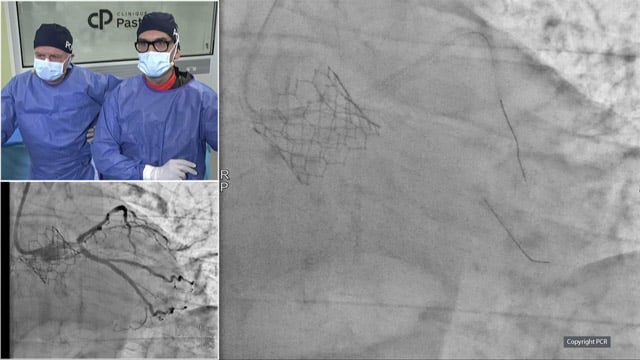
TAVI in bicuspid aortic valve disease - LIVE Case
20 May 2025 – From EuroPCR 2025
A 79-year-old male patient with atrial fibrillation and RBBB on ECG presented with symptomatic severe bicuspid aortic stenosis. LV function was preserved, and coronary artery disease was noted in LAD and first diagonal. A 26 mm Sapien Ultra Resilia valve was implanted via dual femoral access,...
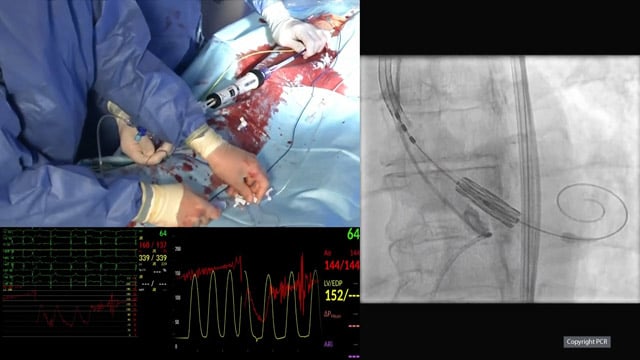
New evidence for treatment of calcified coronary artery disease
20 May 2025 – From EuroPCR 2025
Explore the latest randomized trials and studies advancing the treatment of calcified coronary artery disease. This session covers cutting balloon use, lithotripsy versus conventional preparation, and one-year outcomes comparing rotational atherectomy, lithotripsy, and laser. Also highlighted is the EMPOWER CAD study focusing on women treated with...
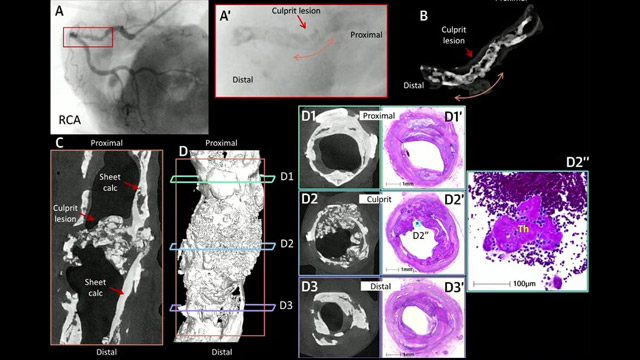
STEMI - What if a culprit lesion is not identifiable?
20 May 2025 – From EuroPCR 2025
Address challenging STEMI cases where culprit lesions are not immediately identifiable. This session emphasizes the utility of intravascular imaging in guiding decision-making and optimizing percutaneous interventions through illustrative cases involving left main stenosis, ambiguous culprit lesions, and etiological dilemmas in coronary occlusion.
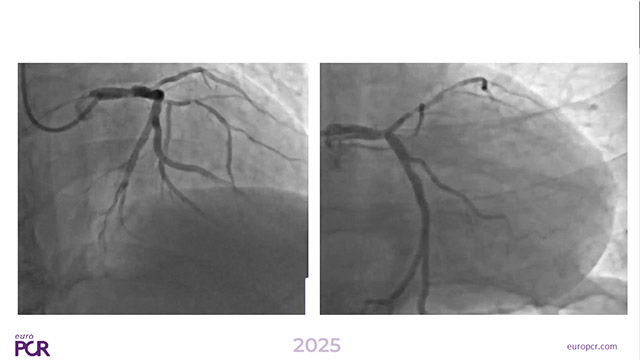
Stable CAD and multivessel disease
20 May 2025 – From EuroPCR 2025
This session delves into the management of stable coronary artery disease (CAD) with multivessel involvement. Learn how clinical and procedural factors influence revascularisation strategies, debate the merits of complete revascularisation, and explore decision-making processes between anatomical and functional approaches through illustrative cases and expert analysis.
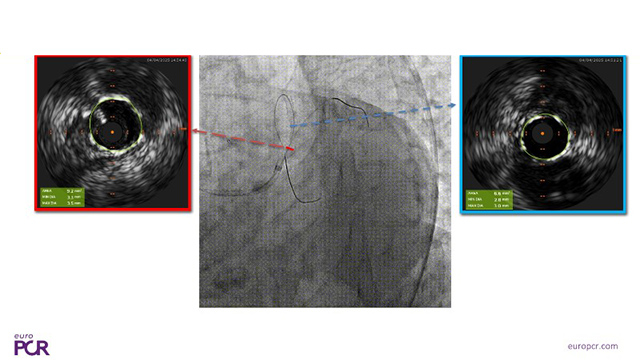
Novel tools and strategies for acute heart failure
20 May 2025 – From EuroPCR 2025
Explore novel mechanical circulatory support tools and strategies for acute heart failure management, including venoarterial ECMO with a customizable counter-pulsatile ventricular assist device, advanced Impella positioning techniques, mitral TEER for cardiogenic shock with mitral regurgitation, and the interplay between vasoactive and mechanical support in ischemic cardiogenic...
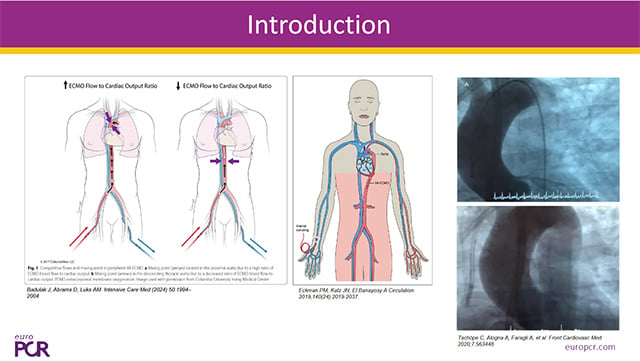
Peripheral artery disease: cutting-edge research and evidence
20 May 2025 – From EuroPCR 2025
Review cutting-edge research and evidence in peripheral artery disease, focusing on IVUS-guided endovascular therapy for femoropopliteal disease, evolving endovascular approaches for Leriche syndrome, predictors of adverse events post-transpedal angioplasty, and multicentre outcomes of distal radial access for radial artery recanalization.
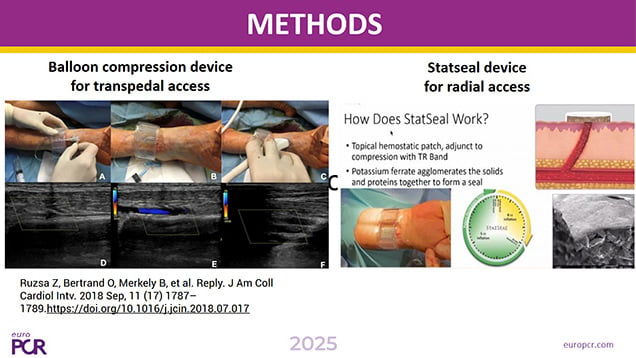
DCB-PCI in de novo lesions
20 May 2025 – From EuroPCR 2025
Evaluate the role of drug-coated balloon (DCB) angioplasty in de novo coronary lesions with a focus on vessel diameter effects, comparisons to drug-eluting stents for small non-complex lesions, management of unstented dissections, high bleeding risk scenarios, and optimal dual antiplatelet therapy durations.
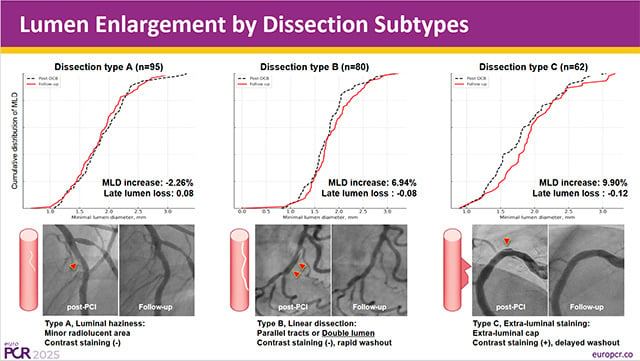
Adressing complex anatomy in STEMI
20 May 2025 – From EuroPCR 2025
Address anatomical complexities in STEMI management through cases involving bilateral compromised coronary ostia due to aortic dissection, rare challenging STEMI presentations, coronary steal phenomena, diffuse atherosclerotic dissections in young patients, and aneurysmal coronary artery angioplasty in IgG4-related disease.
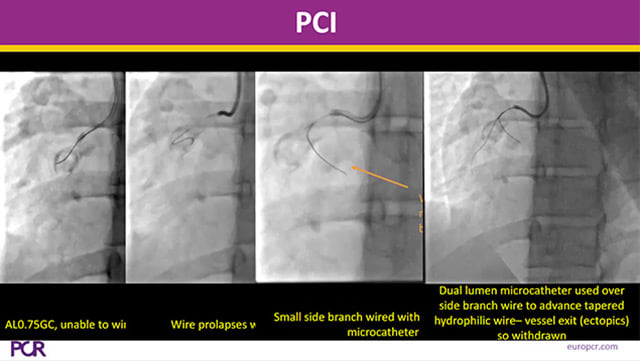
Catheter-based treatment of pulmonary embolism
20 May 2025 – From EuroPCR 2025
Explore catheter-based interventions for pulmonary embolism, addressing high-risk and massive thrombus cases, management of severe complications, and clinical scenarios involving multiple concurrent challenges to optimize patient care and procedural success.
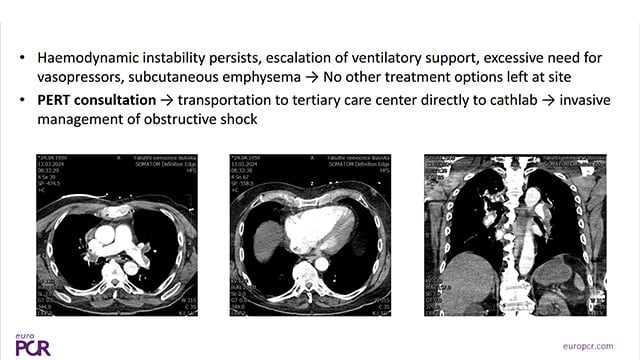
Best companion's case for complications for stable coronary artery disease PCI: episode 2
20 May 2025 – From EuroPCR 2025
Examine complex complication cases during stable coronary artery disease PCI with detailed analyses of iatrogenic coronary dissection, procedural challenges, IVUS-guided resolution, and innovative catheter techniques that highlight precision and adaptability in interventional cardiology.
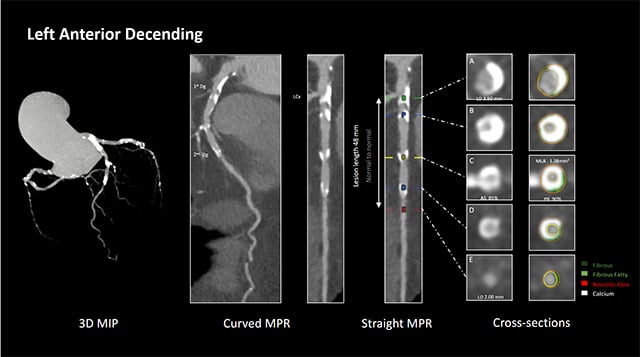
TAVI and aortic valve procedures
11 Oct 2025 – From AICT-AsiaPCR 2025
Focusing on transcatheter aortic valve interventions, this session covers a broad spectrum of complex cases including emergent TAV-in-SAV procedures, management of severely calcified bicuspid valves, zero-contrast TAVI techniques, and strategies for hostile anatomies. It provides valuable insights into procedural planning and follow-up to optimize patient care...
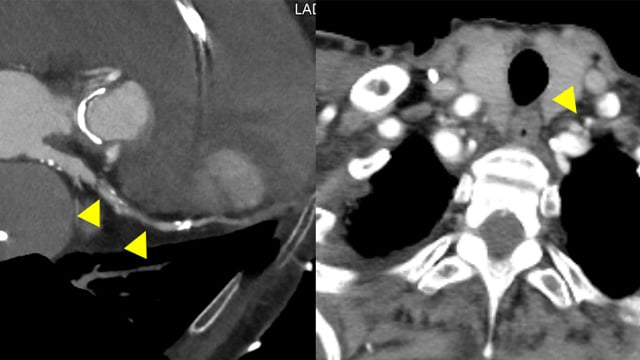
AICT-AsiaPCR 2025 Awards ceremony
11 Oct 2025 – From AICT-AsiaPCR 2025
The AICT-AsiaPCR 2025 Awards ceremony celebrates outstanding achievements and innovations in the field of interventional cardiology. This event recognizes the contributions of clinicians and researchers who have advanced cardiovascular care and highlights excellence across various domains within the specialty.
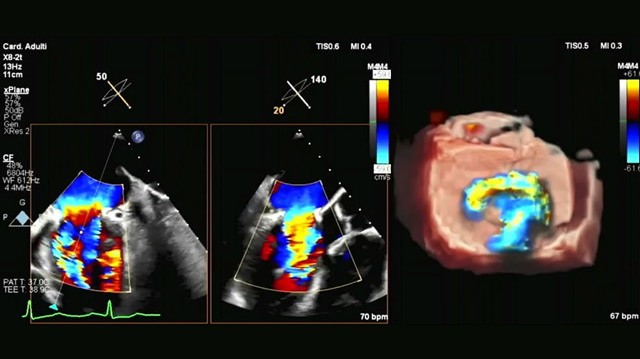
AICT-AsiaPCR 2025 Closing ceremony
11 Oct 2025 – From AICT-AsiaPCR 2025
The AICT-AsiaPCR 2025 Closing ceremony marks the culmination of a comprehensive Course, reflecting on key scientific advancements, collaborative achievements, and the shared commitment to advancing cardiovascular medicine and patient care.
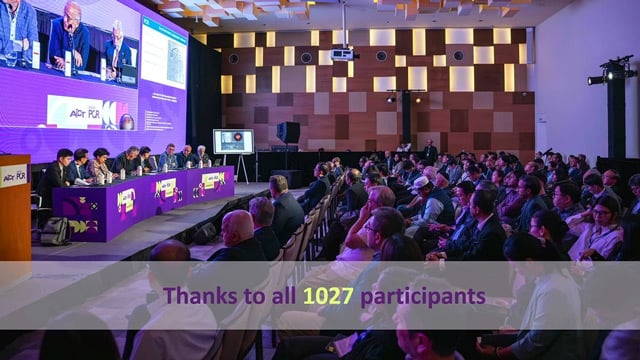
AICT-AsiaPCR 2025 Opening ceremony
10 Oct 2025 – From AICT-AsiaPCR 2025
The AICT-AsiaPCR 2025 Opening Ceremony marked the commencement of the conference's comprehensive program, setting the stage for cutting-edge discussions and advancements in interventional cardiology across the Asia-Pacific region.
